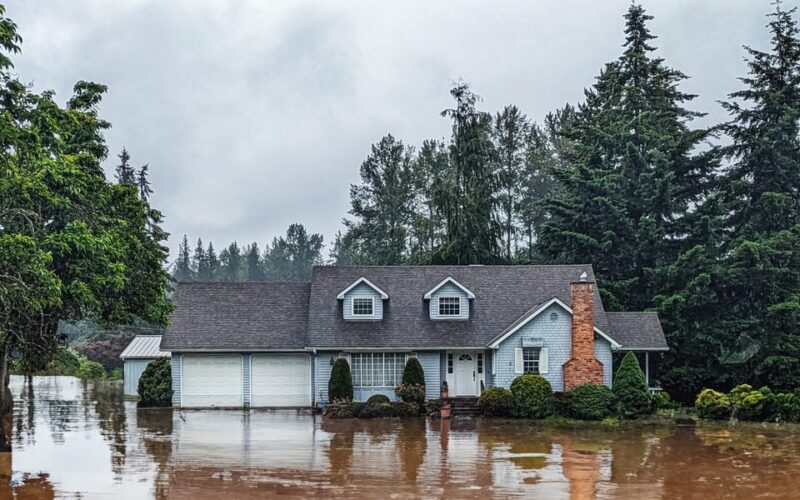A top analyst who spotted and profited from the subprime mortgage crisis is convinced that another financial crisis-caliber crash is coming, but only for homeowners in certain cities.
David Burt, whose $80 million bet against low-quality mortgages landed him in Michael Lewis’ best-selling book “The Big Short,” has warned for years about the dangers of climate change — both for the world and the housing market.
After a half-decade of research about rising global temperatures and extreme weather events, Burt decided in 2019 to launch DeltaTerra Capital, a climate change-focused research firm designed to help investors hedge against risks that threaten to upend the real-estate market.
Since then, scorching heat and natural disasters seem to be getting more common. That’s made Burt even more confident about his long-held thesis, which many property owners are ignoring.
“There’s a reckoning happening right now,” Burt said in a recent interview, in reference to the rising threat and costs of floods, wildfires, and other weather events caused by climate change.
Spiking insurance premiums could cost homes in risky markets over half their value
As temperatures steadily climb, as they have for the last four and a half decades, climate scientists say that extreme weather events like hurricanes will only get more intense.
National Oceanic and Atmospheric Administration, Climate.gov
More dangerous storms cause more damage, which puts insurance companies on the hook for higher repair costs. In response, insurers will raise the premiums they’re charging homeowners in at-risk markets — potentially to double or triple what they are now.
For example, flood insurance costs in coastal cities could rise from $5,000 per year to $15,000 under the updated national flood insurance pricing set by the Federal Emergency Management Agency (FEMA), Burt said. That extra cost could inadvertently cause property values to plunge.
“A buyer would say, ‘all right, I’m not just going to have to pay that $10,000 next year, but every year in the future,'” Burt said. “‘So I probably should shave off 20 years’ worth of those payments from the price and just reserve that capital to pay for those higher insurance premiums.'”
In that scenario, houses currently valued at $500,000 might only sell for $300,000, Burt said, given that buyers would need an additional $200,000 for two decades’ worth of flood insurance. And that’s assuming flood risk doesn’t continue to rise over time, which Burt believes is unlikely.
“You could expect to see something like a 50%, 60% value correction for counties with that kind of exposure,” Burt said of places like Lee County, Florida — home to Fort Myers. “In a lot of these places, that’s just giving back five years of appreciation. It feels like a lot, but it’s really not that much.”
Though that scenario may sound far-fetched to some, Burt warns that it’s realistic. He estimates that skyrocketing insurance premiums will cause 5% to 7% of US homes to lose half their value. That would be disastrous for all property owners in those markets, even those not trying to sell.
Homeowners in coastal cities with the most flooding risk should be even more frightened. In the next decade, Burt believes those properties could be underwater — in every sense of the word.
“If the insurance cost for a home exceeds the amount of rent you can charge for that home as an investor, what is that home worth?” Burt said. “I mean, you tell me. Nothing, right?”
While climate change affects everyone, Burt said its impact won’t be equal. He estimates that only about 20% of US real-estate markets, including many cities in the Sun Belt region, will see substantial home price declines due to rising insurance costs stemming from climate change.
Climate change will do about $1.2 trillion worth of damage to the housing market, according to DeltaTerra Capital, which, fittingly, would be a fifth of the estimated $6 trillion in value lost during the financial crisis. That assumes governments stick to the Paris Agreement on climate change.
If the climate crisis is worse than anticipated, and global temperatures rise 3.5 degrees Celsius from the pre-industrial-revolution average, Burt would anticipate $2 trillion in value destruction.
Homeowners in cities most vulnerable to the effects of climate change should be sweating, if they aren’t already.
“In those exposed communities, that’s a really, really tough environment,” Burt said.
Source link
lol

